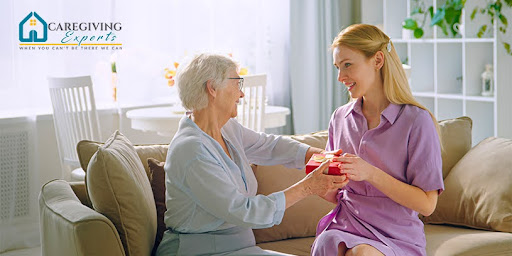Introduction
The role of Caregiving Experts is crucial as elderly require special treatment. These professionals are the backbone of ensuring quality of life, dignity, and support for elderly individuals in need. With expertise ranging from medical knowledge to emotional support, caregiving experts play a vital role in enhancing the well-being of seniors and easing the burden on families. This introduction delves into the indispensable contributions of caregiving experts and their significance in providing holistic care to the elderly population.
Unveiling the Core Elements of Superior Elder Care Services
Elder care services play a vital role in ensuring the well-being and quality of life for our aging population. As the demographic shift towards an older populace continues, the demand for superior elder care services escalates. To meet this demand effectively, it is essential to understand the core elements that constitute exceptional elder care. Caregiving experts offer insights into how they contribute to superior elder care services.
-
Person-Centered Care Approach
Individualized Care Plans
Superior elder care services prioritize personalized care plans tailored to each individual’s unique needs, preferences, and abilities. This approach recognizes the diverse requirements and backgrounds of elderly individuals. Polish your skills to the next level with Caregiving Experts.
Respect for Autonomy
Respecting the autonomy and dignity of older adults is paramount. Care providers should involve them in decision-making processes regarding their care, fostering a sense of control and empowerment.
-
Skilled and Compassionate Staff
Continuous Training
Caregivers experts should receive ongoing training to enhance their skills in elder care, including communication, dementia care, and sensitivity to cultural diversity.
Empathy and Compassion
Compassionate care fosters trust and emotional well-being among elderly individuals. Staff members should demonstrate empathy, patience, and understanding in their interactions.
Interdisciplinary Teams
Collaborative teams comprising healthcare professionals, social workers, therapists, and caregivers ensure comprehensive support for elderly individuals, addressing their multifaceted needs effectively.
-
Safety and Accessibility
Safe Environment
Creating a safe living environment is essential to prevent accidents and injuries among older adults. This includes measures such as fall prevention, adequate lighting, and removal of hazards.
Accessibility
Elderly individuals may face mobility challenges, requiring modifications to the physical environment for accessibility. Superior elder care services ensure that facilities are wheelchair-friendly and equipped with assistive devices as needed.
-
Nutritional Support and Meal Planning
Nutrition Assessment
Assessing nutritional needs and dietary preferences is crucial for maintaining optimal health in older adults. Care providers should conduct regular assessments and collaborate with dietitians to develop tailored meal plans.
Hydration Monitoring
Dehydration is a common concern among the elderly. Monitoring hydration levels and encouraging adequate fluid intake is essential for overall well-being.
Diverse Menu Options
Offering diverse and culturally sensitive menu options ensures that elderly individuals receive nutritious meals that cater to their tastes and dietary requirements.
Engaging Activities and Socialization
Meaningful Activities
Engaging elderly individuals in stimulating and enjoyable activities promotes cognitive function, emotional well-being, and a sense of purpose. Activities may include arts and crafts, music therapy, gardening, and reminiscence sessions.
Socialization Opportunities
Combating loneliness and isolation is crucial for the mental health of older adults. Superior elder care services facilitate social interaction through group activities, outings, and opportunities for meaningful connections with peers and community members.
-
Transparent Communication and Family Involvement
Open Communication
Effective communication between care providers, elderly individuals, and their families is essential for building trust and ensuring transparency in care delivery. Clear channels of communication facilitate the exchange of information, concerns, and feedback.
Family Engagement
Involving family members in care planning and decision-making processes acknowledges their valuable insights and fosters collaborative relationships between caregivers and families. Regular updates and family meetings keep relatives informed about their loved one’s well-being and care plans.
Conclusion
Superior elder care services encompass a multifaceted approach that prioritizes person-centered care, skilled and compassionate staff, safety and accessibility, nutritional support, engaging activities, and transparent communication. By incorporating these core elements into their practices, elder care providers can enhance the quality of life and well-being of the elderly population, promoting dignity, autonomy, and holistic wellness.
| Learn more about Elder Care Services provided at home. Schedule a Free Needs Assessment Today! |
FAQs About Superior Elder Care Services
1. What distinguishes superior elder care services from standard options?
Superior elder care services stand out due to their person-centered approach, which emphasizes individualized care plans tailored to each person’s unique needs and preferences. Additionally, these services prioritize skilled and compassionate staff, ensuring that caregivers are well-trained, empathetic, and capable of addressing diverse needs effectively.
2. How do superior elder care services ensure the safety of elderly individuals?
Safety is paramount in superior elder care services, achieved through various measures such as fall prevention strategies, adequate lighting, removal of hazards, and accessible environments. Additionally, staff members undergo continuous training to handle emergency situations and ensure the overall well-being of residents.
3. What types of activities are offered in superior elder care facilities?
Superior elder care facilities offer a diverse range of engaging activities tailored to the interests and abilities of their residents. These may include arts and crafts sessions, music therapy, gardening, outings to local attractions, group exercises, and opportunities for socialization with peers and community members.
4. How are family members involved in the care process?
Family members play an integral role in the care process at superior elder care facilities. They are encouraged to participate in care planning meetings, provide input on their loved one’s preferences and needs, and stay informed about their well-being through regular updates and family meetings. This collaborative approach ensures that the care provided aligns with the wishes and values of the individual and their family.
5. What measures are taken to ensure proper nutrition for elderly residents?
Superior elder care services prioritize nutrition by conducting regular assessments of dietary needs and preferences. They collaborate with dietitians to develop personalized meal plans that cater to individual requirements, ensuring that residents receive balanced and nutritious meals. Additionally, staff members monitor hydration levels and encourage adequate fluid intake to promote overall health and well-being.


